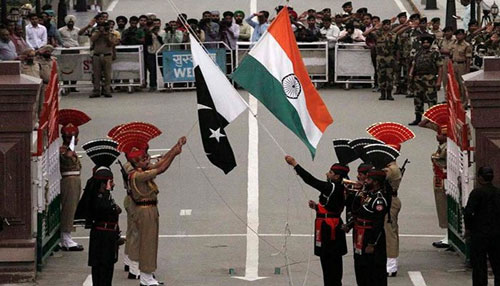London
The International Institute of Strategic Studies (IISS) has said that there is a wide scope for misunderstanding and misperceptions between India and Pakistan in the absence of an official dialogue and backchannel diplomacy.
In it’s latest report on South Asia addressing issues in specific in Indian illegally Occupied Jammu and Kashmir (IIOJK) and Afghanistan, the IISS has said that any attack from either side would raise the risk of the conflict escalating into a new crisis and the situation “remained strained, and Kashmir a potential flashpoint” towards the end of 2020.
The report said that India clamped down on every kind of communication and activity after revoking the status of IIOJK.
The report said: “The Indian government was keen to showcase a return to near normality in the region, including carefully scripted visits for groups of Delhi-based foreign envoys. “But stringent laws remained in place prohibiting protests and allowing for preventive arrests and detention for up to two years without trial.
“Some political activists remained in detention, curbs on media reporting continued and slow 2G internet speeds were the norm. Local political parties (other than the BJP) remained inactive.”
The London-based think tank said that in Narendra Modi’s first term, he ignored Bharatiya Janata Party’s agenda on gobbling Kashmir, focused on development of India and initiated the resumption of dialogue with Pakistan during Nawaz Sharif’s government but “with Modi’s landslide general-election victory in 2019, the appointment of a powerful new home minister and heightened tensions with Pakistan under Prime Minister Imran Khan, the second Modi government sensed an opportunity to deliver early on its electoral pledge on Kashmir” by revoking articles 370 and 35A. This move attracted strong criticism from Pakistan.
The IISS said that India’s position that there can be no dialogue with Pakistan on Kashmir was problematic as it increased risks of continuity of tensions leading to a bigger conflict. In Afghanistan, the report said that Pakistan has repeatedly assured the US of its cooperation in the peace process and of its willingness to use its influence over the Taliban in a positive manner.—KMS










